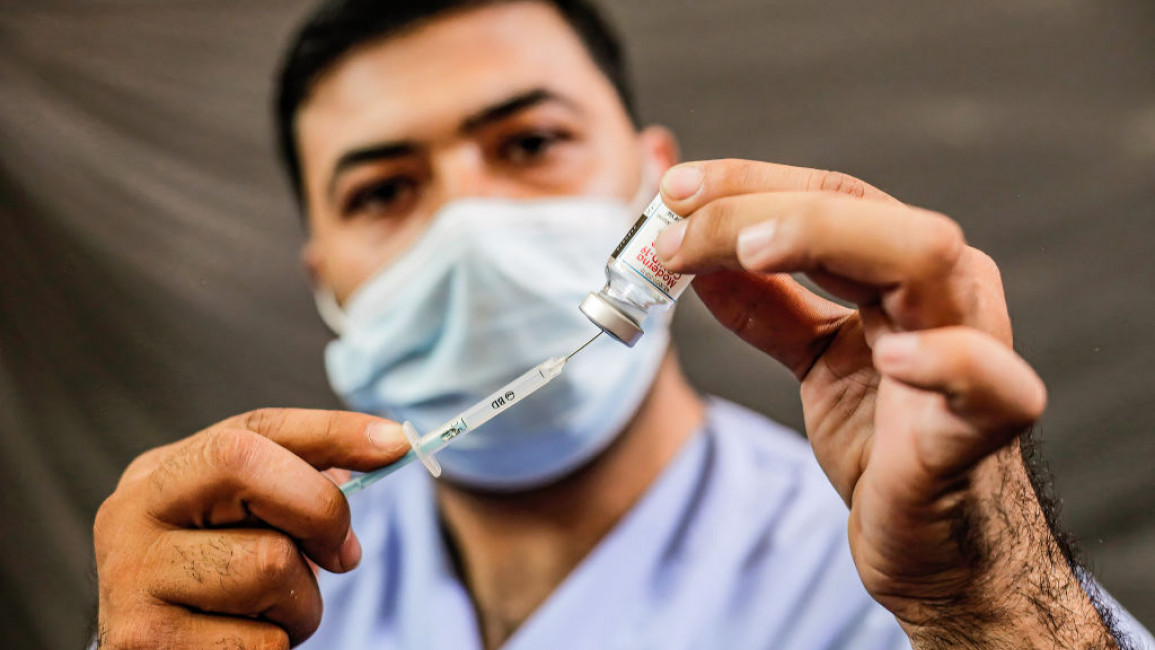Vaccination rates among Palestinians dwindling amid sceptism and low supplies
Only one in six eligible Palestinians have been fully vaccinated against Covid-19 with the required two doses, while just 30 percent have received their first dose, according to reports.
Data released by the Palestinian health ministry has revealed that 655,000 Palestinians in the West Bank and 220,000 in the Gaza Strip have been given at least one vaccine dose out of 2.8 million Palestinians who are eligible for a vaccine.
After long delays, in part due to Israel, the Palestinian Authority has been able to secure 2.8 million vaccine doses through a combination of the COVAX programme and vaccine donations from China and the UAE, according to the World Health Organisation.
Palestinian Prime Minister Mohammed Shtayyeh said there are currently 70 vaccination centres operating in the West Bank.
To fully vaccinate all eligible Palestinians, the Palestinian Authority would need double the number of vaccines currently available but said that existing doses are going unused due to vaccine hesitancy.
A number of people in the West Bank, where vaccination rates are low among adults, have expressed fears about their safety.
"I'm strongly opposed to taking the vaccine now," Suha Gadeon, a member of Bethlehem’s Chamber of Commerce told The New York Times.
"I would only be comfortable after a three- to five-year study proves that it is safe to get," she added.
"Older people fear the side effects, like heart problems and stroke," one medical source told Haaretz.
"Some are basing themselves on incorrect information published on social media."
Others in Palestine have been angered by measures that would punish Palestinian Authority workers who refuse the jab.
Last week, Shtayyeh announced that state employees who do not get vaccinated would be placed on unpaid leave. The Palestinian Authority is the largest employer in the West Bank.
He insisted that rejecting the vaccine was not an issue of "personal freedom... when you are hurting others".
Hamas, who controls the Gaza Strip, implemented similar a policy for all government workers.
Ashraf Al-Qidra, a spokesman for the health ministry in Gaza, said that unvaccinated government employees will face legal measures.
Those who work in the private sector but come into contact with the public must also be vaccinated if they want to remain in their jobs.
Such a hard line taken by the two ruling Palestinian authorities has been questioned by some, who have suggested it would be better to incentivise rather than punish people to get vaccinated.
"There needs to be a balance between public health and personal freedoms," Ammar Dwaik, the director of the Independent Commission for Human Rights, told The New York Times.
"But I think the authorities could have given more consideration to alternatives here."
Recent data available shows a seven-day average of 1,292 positive tests a day in the Palestinian territories.
In total, Palestine has recorded 336,000 positive cases and 3,669 deaths.



